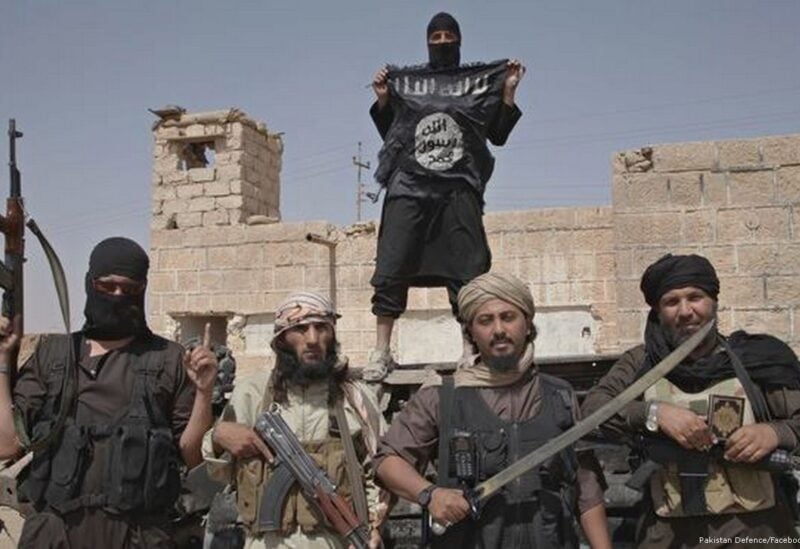
ISIS fighters
In an operation carried out by Turkey’s MIT intelligence agency, the suspected ISIS (Islamic State of Iraq and Syria) chief has been killed in SyriaTurkish President Recep Tayyip Erdogan said Sunday.
“The suspected leader of Daesh, codename Abu Hussein al-Qurashi, has been neutralised in an operation carried out yesterday (Saturday) by the MIT in Syria,” Erdogan said on broadcast.
On November 30, ISIS announced the death of its former leader, Abu Hasan al-Hashimi al-Qurashi. The outfit then appointed Abu Hussein al-Qurashi as his replacement.
Turkish intelligence operatives and local military police in Jindires, in the northwest area of Afrin, shut off a zone on Saturday, according to an AFP journalist in northern Syria.
Locals informed AFP that a farm that had been abandoned was being utilised as an Islamic school. This is where the operation was carried out which subsequently resulted in the killing of the suspected ISIS chief.
Turkey has soldiers stationed in northern Syria since 2020, and with the assistance of Syrian auxiliary forces, controls large zones.
Midway through April, the United States conducted a helicopter raid in northern Syria on the grounds that ISIS had been preparing assaults in the Middle East and Europe.
ISIS member Abd-al Hadi Mahmud al-Haji Ali was reportedly killed in the operation, according to US Central Command.
On April 16 in Syria, suspected ISIS militants killed at least 41 persons, 24 of them were civilians.
US forces, in the first week of April, claimed to have assassinated Khalid Aydd Ahmad al-Jabouri, an ISIS senior who was in charge of plotting strikes in Europe.
ISIS has carried out several terrorist attacks in Europe in recent years, primarily between 2014 and 2017. Some of the major attacks include November 2015 Paris attacks, March 2016 Brussels bombings, July 2016 Nice truck attack, December 2016 Berlin truck attack and May 2017 Manchester Arena bombing.
These attacks, and others like them, have sparked widespread fear and concern about the threat of terrorism in Europe and the ability of security forces to prevent such attacks.
Despite ISIS losing much of its territorial control in Iraq and Syria, the group’s global network of affiliates and its ability to inspire lone-wolf attacks means that the threat of terrorism remains high.
In October 2019, ISIS leader Abu Bakr al-Baghdadi was killed in a US military operation in northwestern Syria. His death was seen as a major blow to ISIS, although the group has continued to carry out terrorist attacks and maintain its global network of affiliates.